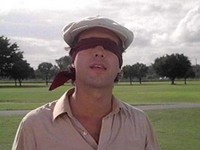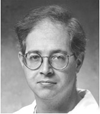"Out of timber so crooked as that from which man is made nothing entirely straight can be built"
Immanuel Kant, 1784.
In the 1980's, Michael Swango, a physician trained in Illinois, was convicted of intentionally poisoning co-workers and spent five years in prison. Despite this, after his release he managed to forge documents enabling him to acquire residency positions at various academic hospitals, where he murdered an estimated 30 patients.
In 1986, Congress passed a law entitled "The National Healthcare Quality Improvement Act." (HCQIA) The main purpose of the act was to create a national database of physician incidents, the National Practitioner Data Bank (NPDB) to block the migration of incompetent and impaired physicians, like Swango, from state to state "under the radar" of institutional scrutiny. Despite imperfections and dificulties, the HCQIA has withstood the test of time, surviving two decades essentially unchanged.
We are all well versed on its' reporting requirements; (i.e. suspensions longer than 30 days, privileges "voluntarily" relinquished under investigation, judgments or settlements greater than $5, etc). It also indemnifies physician leaders who participate in peer review from legal liability for their "good faith" efforts, From the facility/medical staff perspective, a helpful (and sometimes vexing) aspect of the law is the requirement of institutional confidentiality. The reasons for this provision are clear; it balanced out the otherwise oppressive aspects of the law for practitioners, afforded affected practitioners a semblance of privacy pending resolution of their due process appeals, and decreased the motivations of competitors and enemies to make baseless allegations for business advantage.
In practice, the confidentiality requirements are not without their downside. Firstly, given the number of participants to the typical review process, and the pervasiveness of gossip, practically speaking, everybody knows what's going on pretty quickly. I once had heard a rumor that an OR physician was undergoing disciplinary proceedings at a sister hospital; I asked the Chief of Surgery what was going on, and he of course, commendably declined to comment. I then, as an example of this particular problem to the chief and another physician leader, walked out to the hall and asked the first scrub-tech who passed who it was and what it was about; they gleefully told me the whole sordid story with others providing colorful commentary... So, while rumors abound, the hospital is bound to maintain confidentiality. This has occasionally had the unusual effect of allowing affected practitioners who are not required to maintain confidentiality, to publicly proclaim their victimization. In one case, an affected practitioner actually hired a renowned professor to act as an "expert witness," told the witness his one-sided story,and then widely distributed the expert's naive written opinion exonerating the practitioner and excoriating the hospital. All the while the hospital was required to maintain silence; tough to do when you are not only right, but being attacked for it.
About a decade ago, a confidential QA report "fell into" the hands of a plaintiff attorney who used it without permission, as the expert opinion in the filing of a civil complaint against an anesthesia practitioner. Nevada law at the time made QA material "non-discoverable' (couldn't be demanded or obtained through petition) but the law was silent on the use of such material if it was happened-upon outside formal legal process. It was never clear how he received that document. We responded by obtaining sponsorship and passage of a law that made QA material entirely inadmissible the following legislative session.
In a similar situation, I was involved as an expert 25 years ago in a case where a plaintiff attorney had obtained confidential records which were taken after hours by a cleaning worker who was related to the plaintiff; this resulted in an attorney disciplinary action by the state bar, and the records were not admitted
When
I first came to Las Vegas, there was a curious and troubling loophole
in affected practitioner management; the NHCQI act confidentiality requirements precluded hospitals
from informing their competitors/neighbors that a practitioner had been
disciplined outside of the NPDB, and hospital bylaws did not provide
for random reviews of the NPDB. Therefore, a hospital's medical staff
office might know "through the grapevine" that another hospital had suspended
a certain doctor, but the first hospital's bylaws did not provide for a mechanism to
officially "know" this prior to the time for renewal of privileges.
That of course, was untenable. It was rectified by adding a bylaw
requirement at all our hospitals requiring a practitioner to report any
adverse actions at another hospital within 5 (or 7 at some) working
days under threat of summary suspension. This has worked well.
management; the NHCQI act confidentiality requirements precluded hospitals
from informing their competitors/neighbors that a practitioner had been
disciplined outside of the NPDB, and hospital bylaws did not provide
for random reviews of the NPDB. Therefore, a hospital's medical staff
office might know "through the grapevine" that another hospital had suspended
a certain doctor, but the first hospital's bylaws did not provide for a mechanism to
officially "know" this prior to the time for renewal of privileges.
That of course, was untenable. It was rectified by adding a bylaw
requirement at all our hospitals requiring a practitioner to report any
adverse actions at another hospital within 5 (or 7 at some) working
days under threat of summary suspension. This has worked well.
It is unusual (vanishingly rare) for an affected practitioner to prevail in open court (provided bylaws-prescribed due process has been followed) should they choose to challenge a board of trustees' suspension. In the end, it is the board that formally issues suspensions or curtailments, based on MEC and administration recommendations. Although many affected practitioner initially savor "showing the bastards," the realization that court is indeed "open," and confidentiality is no longer preserved tends to dampen the legal enthusiasms of most affected practitioners. Then too, the hospital's representative in court is usually the chairperson of the board, a respected businessman or judge herself. It is hard for affected practitioner's counsel to effectively argue that the Chairperson of the Board and the other Trustees have some nefarious motive other than patient well being for limiting the privileges of the practitioner.
One important point which adds to the sense of unfairness from the practitioner's perspective is that, unlike legal criminal proceedings, the "burden of proof" is not strictly on the hospital and medical staff leadership and the practitioner is not "presumed innocent" until proven otherwise. Rather, the concern is always first for the patients, and when in doubt, the tendency is to halt practice pending careful review. For practitioners with insight and reasonable counsel, this can often be accomplished by mutual understanding short of summary suspension.
The HCQIA is extraordinarily powerful, and if neither leadership nor administration act responsibly, an environment counter to patient well being can certainly be generated, where physicians who speak out on care issues are punished and careers jeopardized. Steve Twedt, a writer for the Pittsburgh Post Gazette, wrote about these risks in a 2003 series. I have never seen an example of this, but am always mindful of the potentials for abuse.
I know of two instances where hospital administrations and MECs have disagreed on the appropriateness of revocation of privileges; in one case the board sided with the administration, in the other, they sided with the MEC. In both cases, the hospital administrations were motivated primarily by economic considerations. Both cases were marked by a highly dysfunctional relationship between administration and physician leadership. In both cases, the administrator left within a year of the conflict.
In general, there's no inherent conflict between a quality-minded administration and responsible medical staff leadership. Although I haven't explicitly stated this, it is my understanding that although leadership is elected by the medical staff, their responsibility is first to the community and the patients, as an extension of their covenant. Secondarily, they have a political responsibility to the medical staff that elected them, to represent the staff's interests. Occasionally, hospital administrators, especially youngsters, become confused about this; they think that the chief of staff has a fiduciary responsibility to the hospital and, in the case of for-profits, the hospital's owners. While the chief might reasonably be construed as having incentives aligned with the owners to help maintain the hospital presence, this is not the same thing. Usually, the differences are subtle, but not always. A seasoned administrator and Chief will always have this in mind, as they seek to forge compromise between the various stakeholders. When it works well, it is very satisfying. Along the same line, payment of more than a modest administrative stipend to the chief raises the spectre of "dual agency," and renders all his behaviors subject to question. (given human nature, the electorate will suspect the chief's motivation, not the paying administration-they know what they are buying!) If the administration wants a physician leader to represent their broader institutional interests, they are well advised to hire a Chief Medical Officer or VPMA.
I said this in an earlier post, but it bears repeating; medical staff leadership is a learned art. I have had many wonderful teachers over the decades; administrators, hospital attorneys, board members, medical staff leaders senior to me, and wonderful nurse-administrators who were very patient as I learned. I have tried to honor their effort by passing their knowledge and teaching along to my junior leadership colleagues- it's Snyder's Axe Handles once again; you can read it here.
 Mitch Keamy is an anesthesiologist in Las Vegas Nevada
Mitch Keamy is an anesthesiologist in Las Vegas Nevada
 Andy Kofke is a Professor of Neuro-anesthesiology and Critical Care at the University of Pennslvania
Andy Kofke is a Professor of Neuro-anesthesiology and Critical Care at the University of Pennslvania
 Mike O'Connor is Professor of Anesthesiology and Critical Care at the University of Chicago
Mike O'Connor is Professor of Anesthesiology and Critical Care at the University of Chicago
 Rob Dean is a cardiac anesthesiologist in Grand Rapids Michigan, with extensive experience in O.R. administration.
Rob Dean is a cardiac anesthesiologist in Grand Rapids Michigan, with extensive experience in O.R. administration.

Nice post. Always good to be mindful of our responsibilities as medical staff in leadership roles.
Posted by: rlbates | September 07, 2024 at 05:32 AM
Certainly these are best reasons for this provision that; it balanced out the otherwise oppressive aspects of the law for practitioners, afforded affected practitioners a semblance of privacy pending resolution of their due process appeals, and decreased the motivations of competitors and enemies to make baseless allegations for business advantage.
Posted by: Term Papers | February 17, 2024 at 09:44 PM